In the realm of pharmaceuticals, Fosmol 3000mg Granules stands as a notable medication known for its efficacy in various health conditions. This article will delve into the comprehensive insights surrounding Fosmol 3000mg Granules, exploring its uses, recommended dosage, and the potential benefits it offers to individuals seeking relief from specific health issues.
Fosmol 3000mg Granules is a pharmaceutical formulation designed to address certain medical conditions and is renowned for its active role in managing and alleviating symptoms associated with these ailments. This article aims to provide a detailed understanding of the medication, shedding light on its mechanisms, recommended usage, and the conditions it is prescribed for.
What are Fosmol 3000mg Granules?
Fosmol 3000mg Granules are a medication primarily composed of macrogol, a type of polyethylene glycol. This formulation is often used as a laxative to relieve constipation in adults, particularly those with chronic constipation or when softening stools is necessary, such as in cases of hemorrhoids or anal fissures.
The active ingredient, macrogol, is an osmotic laxative that works by drawing water into the bowel, softening stools, and increasing bowel movements. Fosmol 3000mg Granules are typically dissolved in water or a non-alcoholic drink before consumption. It’s essential to follow the dosage and administration instructions provided by a healthcare professional or as indicated on the medication packaging.
This laxative is considered safe for short-term use and is generally well-tolerated, but prolonged or excessive use without medical guidance can lead to dehydration or electrolyte imbalances. It’s crucial to consult a healthcare provider before using this or any laxative, especially if there are underlying health conditions or if you’re taking other medications, to ensure its safety and efficacy for your specific situation.
What is Fosfomycin, the active substance in Fosmol 3000mg Granules?
Fosfomycin is the active substance in Fosmol 3000mg Granules. It is an antibiotic that works by interfering with the formation of bacterial cell walls, ultimately leading to bacterial cell death. This antibiotic is primarily used to treat urinary tract infections (UTIs) caused by susceptible bacteria.
Fosfomycin is unique in its mechanism of action and is effective against a wide range of bacteria commonly involved in UTIs, including Escherichia coli (E. coli) and Enterococcus faecalis. It’s often prescribed as a single-dose therapy for uncomplicated urinary tract infections, making it a convenient option for some patients.
Due to its mechanism of action and the way it’s eliminated from the body through the kidneys, fosfomycin achieves high concentrations in the urinary tract, which enhances its effectiveness in treating UTIs. However, its use should be guided by a healthcare professional to ensure appropriate diagnosis, dosage, and duration of treatment based on the specific type of infection and susceptibility of the bacteria causing the UTI.
How are Fosmol 3000mg Granules used?
Fosmol 3000mg Granules, containing macrogol as the active ingredient, are commonly used as a laxative to relieve constipation in adults. Here’s how they are typically used:
Dosage and Administration:
- Dissolving the Granules: The granules should be dissolved in water or a non-alcoholic beverage before consumption. The recommended dose should be dissolved in a glass of water (approximately 125 ml) per sachet.
- Mixing and Consumption: Stir the contents of the sachet thoroughly in the water until the granules dissolve completely. Drink the solution promptly after preparation.
- Dosage and Timing: Dosage and timing instructions may vary depending on the severity of constipation and individual response. It’s essential to follow the dosage recommended by a healthcare professional or as indicated on the packaging.
- Response Time: The laxative effect typically occurs within 24 to 48 hours after taking the medication. It’s important not to exceed the recommended dosage or use it for an extended period without medical guidance.
Precautions and Considerations:
- Always follow the instructions provided by your healthcare provider or as directed on the packaging.
- Ensure adequate fluid intake while using these granules to prevent dehydration.
- If symptoms persist or worsen despite using the medication, consult a healthcare professional.
It’s crucial to use Fosmol 3000mg Granules as directed by a healthcare professional to ensure safe and effective relief from constipation. Individuals with specific health conditions or taking other medications should consult their healthcare provider before using this laxative.
When to Use Fosmol 3000mg Granules
Fosmol 3000mg Granules, containing macrogol as the active ingredient, are typically used to relieve constipation in adults. They can be considered in the following situations:
- Occasional Constipation:
- Short-Term Relief: Fosmol 3000mg Granules can be used for short-term relief from occasional constipation caused by dietary changes, travel, or temporary factors.
- Chronic Constipation:
- Chronic Management: For individuals with chronic constipation, this laxative might be recommended for short periods or intermittently to alleviate symptoms.
- Preparing for Certain Medical Procedures:
- Pre-Surgical Preparation: In some cases, laxatives like Fosmol 3000mg Granules might be used before certain medical procedures or surgeries to clear the bowels.
- Under Medical Supervision:
- Under Healthcare Guidance: Use Fosmol 3000mg Granules under the guidance of a healthcare professional, especially if constipation persists or if there are underlying health conditions.
It’s essential to use Fosmol 3000mg Granules as directed by a healthcare provider or as indicated on the packaging. While generally safe for short-term use, prolonged or excessive use without medical guidance is not recommended. If there are concerns about persistent constipation or the need for ongoing laxative use, consulting a healthcare professional is advisable to determine the most appropriate management plan.
Potential Side Effects
Fosmol 3000mg Granules, primarily composed of macrogol, are generally considered safe when used as directed. However, like any medication, they can potentially cause side effects in some individuals. Possible side effects may include:
- Common Side Effects:
- Gastrointestinal Discomfort: Mild abdominal discomfort, bloating, flatulence, or cramping might occur initially but often subside as the body adjusts to the medication.
- Diarrhea: In some cases, especially with excessive use, Fosmol 3000mg Granules might lead to loose stools or diarrhea.
- Rare or Less Common Side Effects:
- Allergic Reactions: Although rare, some individuals may experience allergic reactions such as skin rash, itching, or swelling of the face, lips, or tongue.
- Dehydration: Inadequate fluid intake while using this laxative might lead to dehydration, especially in vulnerable populations like the elderly or individuals with certain health conditions.
- Electrolyte Imbalance: Prolonged or excessive use of laxatives could potentially disrupt electrolyte balance, leading to imbalances in sodium, potassium, or other electrolytes.
- Important Considerations:
- It’s crucial to drink sufficient fluids while using Fosmol 3000mg Granules to prevent dehydration.
- Avoid prolonged or excessive use without medical guidance.
- If experiencing severe or persistent side effects or any signs of an allergic reaction, discontinue use and seek medical advice promptly.
While most individuals tolerate macrogol-containing laxatives well, it’s essential to be aware of potential side effects and use the medication as directed by a healthcare professional or as indicated on the packaging. If there are concerns about side effects or the appropriateness of this laxative, consulting a healthcare provider is recommended.
Read also: What is Otozambon, and its uses?
Fosmol 3000mg Granules: Frequently Asked Questions (FAQs)
Is Fosmol 3000mg Granules available in the UAE?
Availability may vary, but Fosmol 3000 mg Granules, containing macrogol as the active ingredient, might be available in pharmacies or healthcare facilities in the UAE. Consult with local pharmacies or healthcare providers for availability and prescription requirements.
What conditions can Fosmol 3000mg Granules be used for?
Fosmol 3000 mg Granules, primarily used as a laxative, are indicated for the relief of constipation in adults, providing short-term relief from occasional constipation or assisting in managing chronic constipation.
Is fosfomycin a strong antibiotic?
Fosfomycin is an antibiotic used to treat urinary tract infections (UTIs). It’s effective against a range of bacteria causing UTIs and is considered potent due to its unique mechanism of action and ability to achieve high concentrations in the urinary tract.
What is fosfomycin 3 gm for?
Fosfomycin 3 gm refers to a single-dose therapy of fosfomycin, often prescribed for uncomplicated urinary tract infections. It’s a convenient and effective treatment option for certain UTIs.
How do you take fosfomycin granules?
Fosfomycin granules are typically dissolved in water or a non-alcoholic beverage before consumption. Follow the specific instructions provided by a healthcare professional or as indicated on the medication packaging.
How many sachets of fosfomycin should I take?
The dosage and number of sachets of fosfomycin prescribed depend on the type and severity of the urinary tract infection, individual response, and the healthcare provider’s recommendation. Follow the prescribed dosage and treatment duration advised by your healthcare professional.
Always consult a healthcare provider for specific guidance regarding the use, dosage, and administration of fosfomycin granules or any medication to ensure safe and effective treatment for your condition.


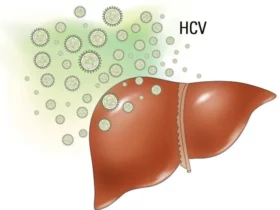

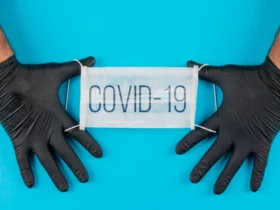

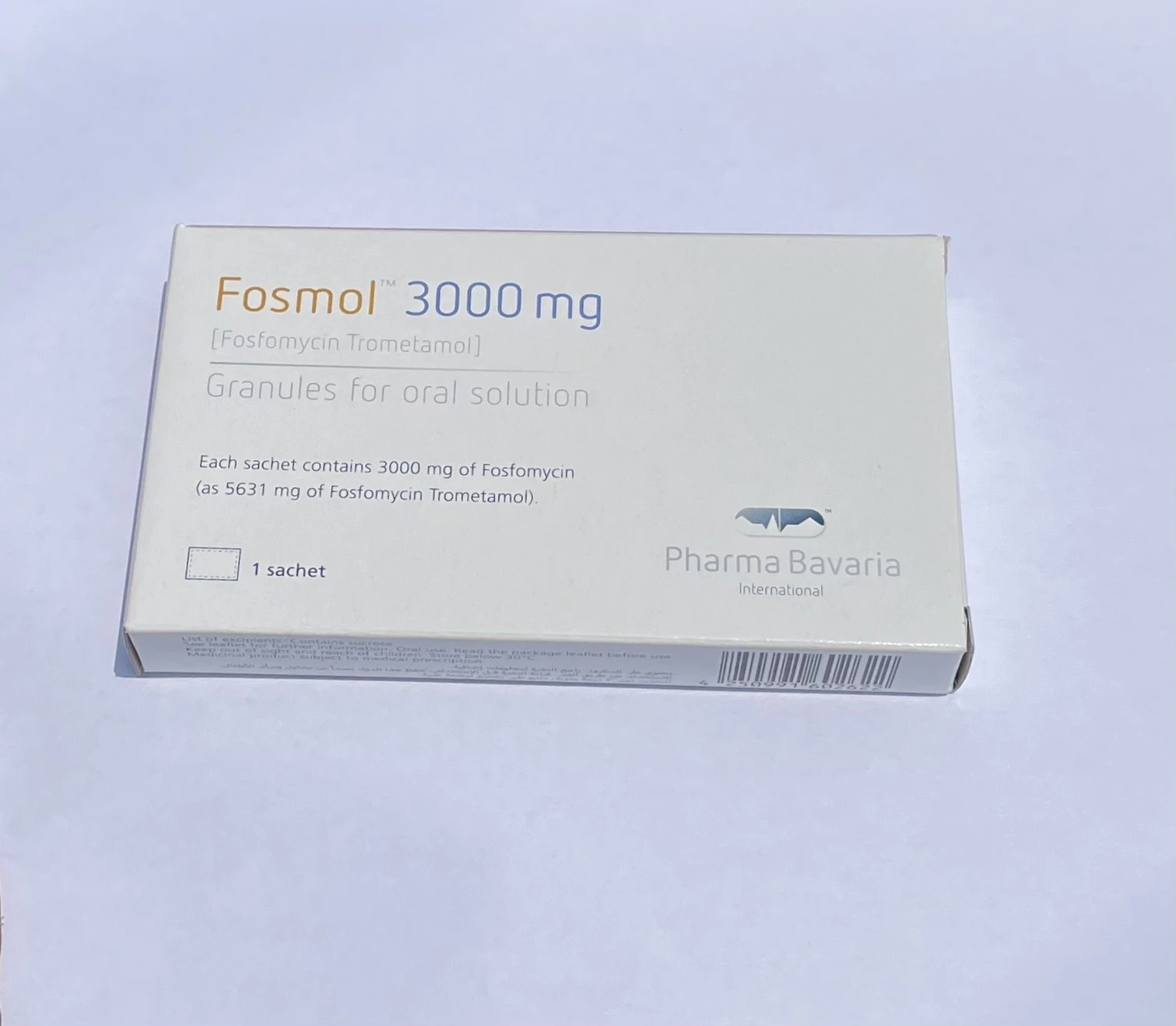
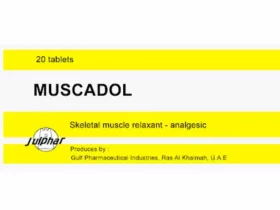
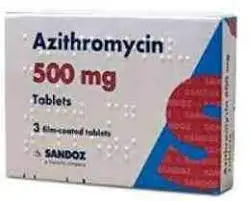




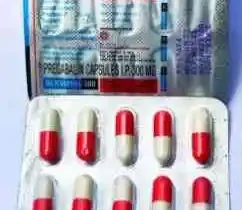
Leave a Reply